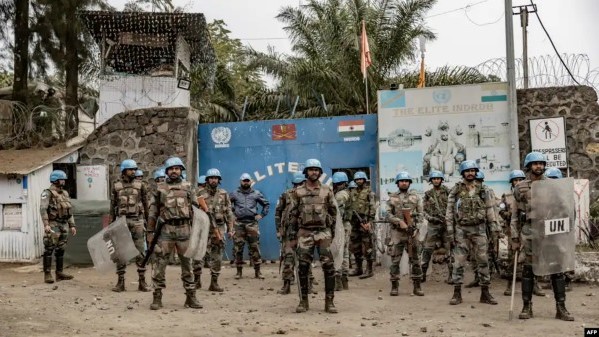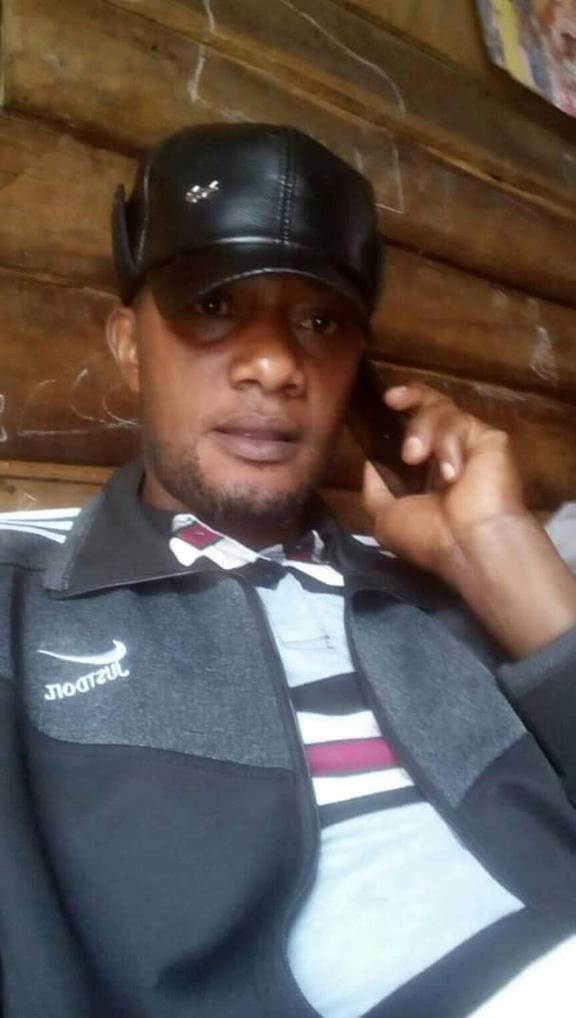Regional
World leaders call on DRC to assume its responsibilities

A
Security Council delegation conducted a three-day visit to the Democratic Republic
of Congo, which ended on March 13. During the visit, the UN team met with
President Félix Tshisekedi in Kinshasa, and later, in Goma, they held talks
with local officials, civil leaders and toured a displaced persons' camp.
As
has been the norm with any delegation visiting DRC, Tshisekedi and his government
used it as an opportunity to blame and accuse neighboring Rwanda for their
internal failures. However, while speaking to media, the UN delegation through
its the head of delegation and France's U.N. ambassador, Nicolas de Riviere,
said that dialogue is the only way to solve the conflict in the country’s east and
that Congolese leaders should take up their responsibility.
"I
want to insist on this, the United Nations cannot do everything. They are not
in charge of everything, the authorities of the Democratic Republic of the
Congo are also in charge, the Armed Forces of the Democratic Republic of the
Congo are at home too; so, it is their responsibility,” he said.
“The
United Nations is there to support, there is no magic solution, it is not the
United Nations that will solve the problems on its own.”
Speaking
on how the armed groups acquire arms and ammunitions, De Rivière said that 80
per cent of them came from government forces, FARDC.
When
Congolese Cardinal Fridolin Ambongo spoke during the recent Pope Francis' visit
in February, in Kinshasa, he underscored that the real problems faced by
Congolese people are poverty and poor governance.
On
the presidential elections which Tshisekedi seems determined to postpone by any
means, Cardinal Fridolin said, in front of Pope Francis: “We hope to see free,
transparent and peaceful elections held in our country.”
These
are words that Tshisekedi doesn’t like to hear.
Tshisekedi
has vowed to make Rwanda a scapegoat of his insecurity and economic crisis. In
front of the Pope, Tshisekedi cried that he is being aggressed by Rwanda, the
same narrative he repeated during the visit of French President Emmanuel Macron
in March.
After
accusing Rwanda, Tshisekedi received another slap in the face, which was the
truth from his guest, Macron.
During
a joint press conference in Kinshasa, Macron said: “Since 1994, you have never
been able to restore the military, security or administrative sovereignty of
your country. It's a reality. You must not look for culprits outside.”
The
UK Minister for Development and Africa, Andrew Mitchell, also visited the
country in March. During his three-day visit to the country, Minister Mitchell
was, among others, interested in discussing with Tshisekedi steps towards
ending the violence in the east of the country. Tshisekedi shunned Mitchell.
While
Tshisekedi continues to play blame games, the situation continues to deteriorate
in other parts of the country.
Apart
from world leaders calling out Kinshasa on bad leadership, Tshisekedi is
getting an earful from his own compatriots. Former journalist and member of regional
parliament of Kinshasa Mike Mukebayi spoke about the issue of FDLR and their
collaboration with the Congolese government.
The
FDLR are a UN-sanctioned terrorist group formed by the remnants of the
perpetrators of the 1994 genocide against the Tutsi in Rwanda.
They
fled to DRC nearly three decades ago and were accommodated by the Congolese
government but the militia group has wreaked havoc in the region, pillaging,
raping, and killing innocent civilians while spreading its genocide ideology.
Mukebayi
said: “Everyone tells us to deal with the issue of the FDLR, but you will hear
some Congolese leaders saying that the FDLR is just a Rwandan pretext, but if
this is a pretext, it must be removed.
“One
should also acknowledge that FDLR is still lethal, isn’t it President
Tshisekedi that gave us that scoop, telling journalists that it is this
negative force that killed the Italian Ambassador to DRC?”
“If
FDLR has means to get such sensitive information, plan an operation and execute
it murdering a high-level diplomat, how can you say FDLR is almost non-existent,
a residual force? So, what does such murder mean when the FDLR strikes such a
blow to Rwanda? ‘We are still existing.’ That's the message they are sending
out to Rwanda and the world,” Mukebayi said.
On
the same topic, he noted, DRC is in no position to impose on Rwanda to
negotiate with the FDLR, while the militia continue to loot the country’s
wealth and remains a danger to all Congolese.
On
the responsibility of his country, Mukebayi added that a serious state cannot
accommodate the presence of a single threat (FDLR) at home without its consent.
He
pointed out that senior Congolese officials should cease collaboration with the
genocidal armed group.
Wherever
Tshisekedi or his officials travel, they have one single message to their hosts:
that they are aggressed by Rwanda and all Congolese troubles are caused by
Rwanda.
But
the root causes of insecurity and economic crisis in DRC are well known.
And
Tshisekedi is, clearly, being told the truth by the world.
His
poor leadership is the main cause of all trouble in DRC.



.jpeg-20230326115316000000.jpeg)
.jpeg-20230325093542000000.jpeg)


